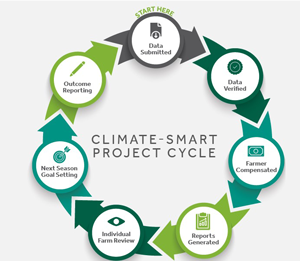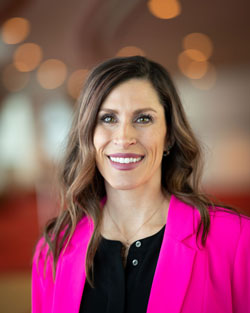The information below has been supplied by dairy marketers and other industry organizations. It has not been edited, verified or endorsed by Hoard’s Dairyman.
Farmers throughout the Upper Midwest will have an opportunity to participate in a multi-year climate-smart sustainability program that uses data to inform new farming practices and potentially generate added value for the food the farms produce.
Edge Dairy Farmer Cooperative and partner Farmers for Sustainable Food announced that the groups today will begin accepting farmer enrollment in the program, called the Farmers for Sustainable Food Climate-Smart Project. The announcement comes at the culmination of recent on-farm pilot testing of the program and after years of the organizations helping farmers successfully establish on-farm environmental sustainability projects and working collectively in local farmer-led watershed conservation groups.

Projects in the program, with initial funding from a U.S. Department of Agriculture Partnerships for Climate-Smart Commodities grant, are grounded in FSF’s Framework for Farm-Level Sustainability Projects, a nationally recognized, proven model. The grant will allow for farmers to receive a stipend as an added incentive.
“We are excited to present this opportunity to more farmers and organizations as we continue to roll out our sustainability efforts,” Tim Trotter, CEO of Edge Dairy Farmer Cooperative, said. “We have developed a program we believe gives our farmers a competitive advantage. Much like the work we have accomplished over the years with farmer-led conservation groups, this program is farmer-driven. That is so very important.”

- Member of Edge Dairy Farmer Cooperative
- Membership in a local farmer-led watershed group that participates in FSF
- Dairy processor or another organization-led project
Financial compensation is based on the farm’s participation level:
Contributor: Participants complete a simple greenhouse gas and carbon assessment based on current on-farm practices. No additional requirements. Contributors receive $1,500 per year of participation.
Cultivator: Participants take a deeper dive into their farm data through more in-depth assessments of farming practices using tools such as the Fieldprint Platform, COMET-Farm or other approved assessment tools. Cultivators receive an additional $3,000 for a total of $4,500 per year.
Collaborator: Farmers who help connect the supply chain by sharing data with downstream partners, such as processors, to help generate added value for commodities. Collaborators receive an additional $4,500 for a total of $9,000 per year.
Two pilot projects in the program were launched earlier this year. The first farmer payment was issued last month.

“Our programs differentiate from many others because we are not requiring farmers to implement any specific practices,” Lauren Brey, FSF’s managing director, said. “Rather, we let the farmers determine the critical environmental concerns in their area and then, by using technical tools and resources available through our program, they can evaluate the impact their changes are making. Our program goal is to help farmers learn to use tools to make management decisions that are right for their farm when incorporating new sustainability practices.”
FSF is partnering with Houston Engineering Inc. to provide technical data assistance to farmers.
Brey said the program takes farmer involvement to the next level by incorporating other entities in the supply chain, including dairy processors. Those processors have the opportunity to spearhead projects through the program. Likewise, FSF and Edge will support farmers in sharing their outcomes with processors to help realize value at the end-user stage.
“We are fortunate to have an established membership and board of directors, from across the value chain, already engaged with FSF since our inception in 2016,” Brey said. “These individuals have been instrumental in developing this program to ensure that the work being done on the farm has value downstream in the supply chain. We see this as a true added value to those who enroll in our program.”
Trotter said he is encouraged by the initial interest and participation in the program.
“This is another leg of our progressive, impactful and measurable sustainability journey,” he said. “We look forward to continuing to expand our work in this important area.”
Enrollment: Farmers interested in enrolling should send an email to climate-smart@voiceofmilk.com. An informational webinar will be held March 12 to provide more details.
Brey will be participating in a panel discussion at the Central Plains Dairy Expo on March 20 to discuss how farmers can begin monetizing their sustainability efforts.





